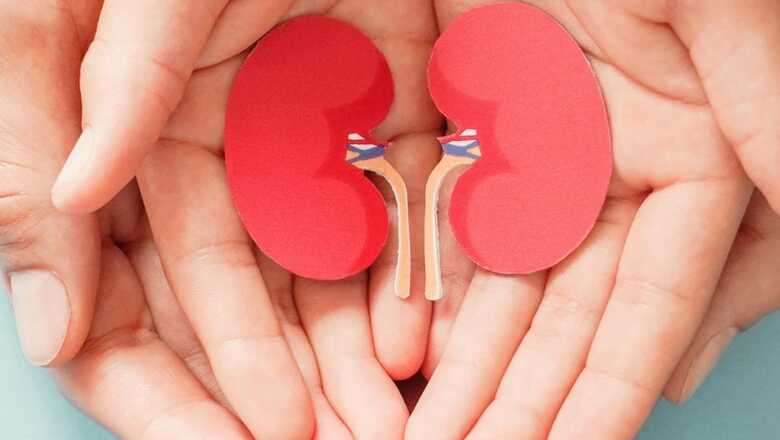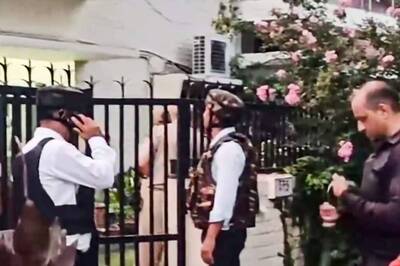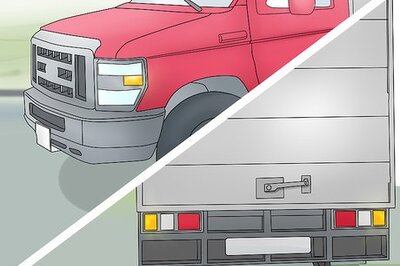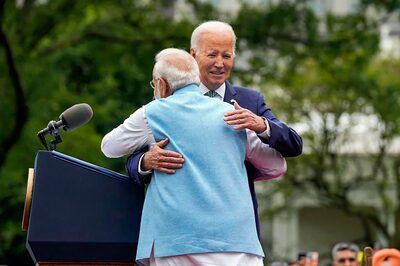
views
Transplant is a proven therapy for organ failure but organ shortage is a challenge. A positive thought for coming forward as voluntary organ donor for own near and dear is doing its bit but time has arrived in India when all of us should take a step forward on this world organ donation day to pledge our organs after death. Even if a person dies, his organs can keep working making so many patients of organ failure live longer.
Magnitude of the problem
The number of patients affected by chronic kidney disease has increased affecting upto 843.6 million individuals worldwide in 2017. “In India, non communicable diseases such as kidney failure, heart failure and liver failure pose emerging major health challenge. The prevalence of Chronic Kidney Disease ( CKD) and End Stage Renal Disease (ESRD) are estimated at 7852 and 1870 per million respectively. In India the number of deaths due to ESRD was 3.78 million in 1990 and is expected to increase up to 7.73 million in 2025,” says Dr Jitendra Kumar, Chairman Renal Sciences, Accord Superspeciality Hospital , Faridabad.
Need for transplant
Acute dysfunction of an organ can be handled by supportive care till patient recovers from crisis. If an organ is permanently damaged , the best treatment option is to get an new human organ. “In kidney failure although dialysis is increasing in number giving hope and longevity to many, even 3 times per week dialysis can give only 10% of normal kidney function. So a dialysis patient needs to follow a lot of dietary and fluid restrictions and rehabilitation becomes difficult due to mandatory frequent hospital visits and work hour loss,” adds Dr Kumar. Economic burden is understandable as patient or care provider would be paying roughly about Rs 25000 to Rs 40000 per month for entire life. If we add the cost of work days lost (8 to 12 days per month) cost increases further. No doubt, such patient keep dying early due to lack of quality care, fund crunch and fatigue of care providers. In India transplantation is more cost effective than dialysis as this is one time cost and patient is rehabilitated better. They can go back to a near normal life . Although medications and precautions are required lifelong.
“After first kidney transplant in India in 1971, Indian medical fraternity have developed their expertise enormously to achieve excellent world class results and today India is providing economical transplants to international patients,” states Dr Kumar.
Donor problem
A human organ mainly come from a healthy voluntary donor. The concept of brain death has made it possible to retrieve cadaver organs. “In India the strong familial relationships make it possible for ever increasing number of live related donations. Whereas in west, cadaveric donations are more common. But there is long waiting list world wide and in India too, ” opines Dr Kumar.
Even worldwide, only 10% of patients needing organs get them in time. Spain and the U.S. have better organ donation systems clocking 30-50 donations per million. Dr Kumar believes, “In India against the annual need for 2,00,000 kidney transplants only 10,000 transplants are performed each year and hence waiting list has increased to over three lakh patients. At least 20 persons die each day waiting for an organ. According to the Health Ministry’s data, the number of donors (including deceased) only grew from 6,916 in 2014 to about 16,041 in 2022. India needs to increase this to 65 donations per million population. This situation is likely to worsen in future.”
Hence various steps are required to change this scenario. Making voluntary organ donation easy is one way out. While donor interests must be kept in mind to regulate organ trafficking, harassing genuine patients and donors is also unwanted. This is also unfortunate that irresponsible people start blaming medical fraternity in areas where they have no control- for example the possibility of forged Adhar card by patient and donor.
Cadaveric transplants need to be promoted. After brain death a deceased can save lives of 8 different people. Although such transplants are increasing in number, north is lagging mainly to religious and administrative barriers. NOTTO is making lot of efforts to change this.
After transplant there are chances of infection and organ rejection and recurrence of old disease in the new organ. Hence regular followup with doctor is mandatory. Donor does not require any regular medication but they should also be followed up.
Although the possibility of transplant has revolutionised the health scenario of organ failure but treatment still remains beyond reach of common people. Shortage of organ donors is another reality. Work is being done for artificial kidney and heart but they are still clinically unavailable
So the best thing is to avoid organ failure. “Life style changes, mindful eating, exercise, yoga, weight reduction, cessation of alcohol and smoking will help prevention organ damage. People with chronic diseases such as diabetes hypertension, arthritis, kidney stone, chronic infection must follow a standard scientific regime. Many times our superstitions and faiths worsen organ damage in silent asymptomatic diseases which would otherwise were easy to manage,” opines Dr Kumar.
Prevention is definitely better than cure. We Indians must learn token wellness and health as priority



















Comments
0 comment